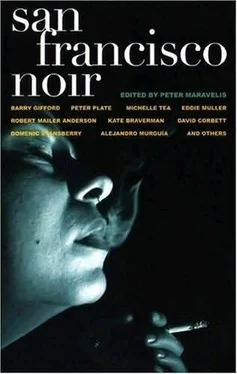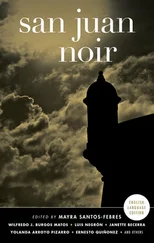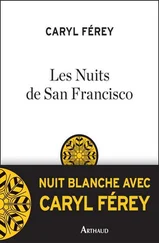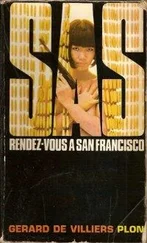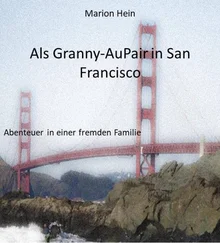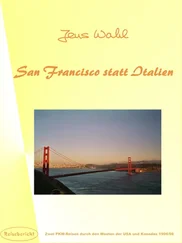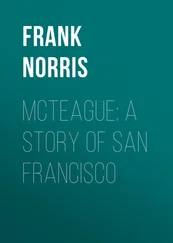“We rode buses, trying to find the city,” Clarissa remembers. “We had library cards.”
True, Zoë thinks, but they could not find their geography or circumstances in literature. Nature was oaks and maples, not a riot of magenta bougainvillea, not a blaze of red and yellow canna bursting through bamboo fences sticky with pink oleander. Families had two parents and pastel houses behind lawns with white picket fences where characters experienced angst rather than hunger and rage. Such children did not sift through trashcans in dusk alleys searching for glass soda bottles redeemable for two cents apiece. Gather enough glass and you had bus fare. On a fortunate hunt, you could trap enough coins for lunch.
“Remember digging for bottles for food money?” Zoë asks.
“I remember what you said,” Clarissa smiles. “You said Holden Caulfield would have taken a taxi.”
Zoë laughs. “Remember our black berets? We were trying to meet Ginsberg and Kerouac. We wore those berets every day. We got lice.”
Clarissa shrugs. “We looked for beatniks right here, on this pier. Boys with sketchbooks and guitars. We said we were French. We practiced our accents at recess.”
Recess in the region of broken families, of divorcées and single mothers, of stigma and words that could not be spoken out loud. Alcoholism. Cancer. Child abuse. Illegitimacy. Domestic violence. The special yellow smell of Sunday evenings when the mothers who worked as secretaries poured peroxide on their hair. The tiny implications of illumination from the one lamp you were allowed to turn on. Electricity was an extravagance. Their San Francisco was a medieval oasis, ocean at your face, desert at your back. There were warlords at the utility companies with incomprehensible capabilities and powers. Phones were instruments of terror. It cost money every time you touched them. Long distance calls were rationed, like chocolate during a war. The world as it was, before hotlines that could put your father in prison.
“I still have nightmares about the apartment in Daly City,” Clarissa reveals. “At every St. Regis and Ritz, from Beijing to Buenos Aires, I wake up shaking. At the Bora Bora Lagoon Resort Hotel. At the Palazzo Sasso in Ravello, for Christ’s sake. The plot complications vary but somehow I’m back there.”
“Remember the neighbors?” Zoë asks. They lived next door, with a cement hall between them. She is dizzy. Her arm burns.
“The wetbacks and hillbillies? The identical blondes with drawls?” Clarissa is unusually bright. “It was still the Depression. I had a friend once. Another friend, not like you, Zoë. A hillbilly. Jerry found us listening to the radio. It was Elvis. Jerry started yelling, You’re playing colored music? You’re putting colored music in my house? He threw the radio at my face. Took out my front tooth. That’s how I discovered caps.”
“That was me,” Zoë corrects. “It was Marvin, not Jerry. And he used the ‘n’ word.”
“We had the same father, metamorphically. A barbarian with bad grammar who thought a yarmulke was a ticket to prison. A guy who could plaster and drywall. They were house painters. When they were employed. House painters.” Clarissa stares at the bay.
“Like Hitler,” Zoë points out. Then, “Had your mother run away yet?”
“Rachel? She was on the verge. She was becoming River or Rainbow or something in secret. Preparing for her first commune. After Jerry, a sleeping bag and a candle was a good time.”
Zoë remembers Clarissa’s mother. A woman sheathed in dark fabrics who sank into shadows, kept her back to the wall, found her own periphery, rarely spoke. Jerry had pushed her out of a moving car. He kicked in her ribs and put her in a cast. Clarissa’s mother, a bruised woman in the process of metamorphosis. Yes, molting like the hibiscus and night-blooming jasmine beside the alleys, sheathed in long skirts, shawls, and kimonos. She was younger than they are now.
Then Clarissa had a family of subtraction. Zoë envied her. All the neighbors had incomplete families. The brothers in juvenile detention. The sisters who disappeared. Soon, if Marvin stopped lingering, if he would just die, she could have a similar reduction. Perhaps she could escape the anomalous caste consigned to stucco tenements with torn mesh screen doors and vacant lots behind wires and no white picket fences. And the mothers and aunts who rode buses and worked as file clerks between nervous breakdowns. Even secondhand cars were an aberration. If she got placed in foster care, adoption might follow. She had straight As and then won the poetry and science competition. Maybe she could be given a new name with syllables that formed church steeples on your lips, like the women in books. A stay-at-home mother with a ruffled apron who baked cookies could call her Elizabeth or Margaret or Christine.
“Did you realize we were Jewish?” Zoë wonders.
“I was instructed to never to reveal this. The hillbillies thought we were Christ killers and owned all the banks,” Clarissa answers. “And Jerry said they’d deport us. Send us back to Poland.”
“I wanted a bat mitzvah,” Zoë suddenly remembers. “I don’t know how I even knew the word. Marvin said, You mean a Jew thing? It costs a fortune to get into that club. They inspect you first. You have to shave your head and show them your penis.”
“Speaking of Marvin’s penis, remember the Polanski scandal? When he sodomized a thirteen-year-old?” Clarissa asks.
It happened in California. It was front-page news in an era when newspapers were read and discussed. The details were graphic and comprehensive, indelible like a personal mutilation.
“Jerry said, I knew that guy in Warsaw. He’s 5'2”. He’s got a three-inch dick . He mimed the organ dimensions with his fingers.” Clarissa repeats the demonstration for her. “Then he said, Why is this a headline? What kind of damage can you do with a dick that small?” Clarissa turns back to the bay.
“Is that when it happened? When you moved away? You disappeared. The phone was disconnected. I couldn’t find you for a year.” Zoë tries to form a chronology.
“Brillstein says it wasn’t rape. It was an inevitable appropriation. Jerry thought a ditch with a turnip in it was a party. I was chattel. Rachel left and he just moved me into their bedroom. I came home from school and my clothes were hanging in their closet. My pajamas were folded on their bed. Then he found us an apartment in Oakland. He let me pick out curtains,” Clarissa explains. “Hey, I was the first trophy wife on the block. It’s my mother I hate. She knew what would happen. I was expendable.”
“But she came back for you,” Zoë says. “She took you to a commune. You went to college. You got out.”
“You don’t get out, for Christ’s sake.” Clarissa is angry. “You chance to survive.”
Zoë examines the bay. There is less agitation, swells softer; a haze grazes what was amethyst. The diagnosis has come. The bay had its biopsy. This stretch of ocean is terminal.
“Didn’t Marvin break your wrist?” Clarissa suddenly asks. “You had bandages all summer. You had to stay on the pier, reading.”
“Mommy did it, actually. She was between mental hospitals that month. Maybe a weekend pass. Her contemptuous glare. It cut right through the chemo and antipsychotics. She ratted me out. She said, Marvin, look, that kid’s talking with her fingers again. Don’t you know only Jews and Gypsies talk with their hands? I remember precisely. She said, You think you’re a neurosurgeon? You think you’re a symphony conductor? You’re not even human. Then she seized my hand. I had three fractured fingers and they took her in the ambulance.”
Читать дальше
